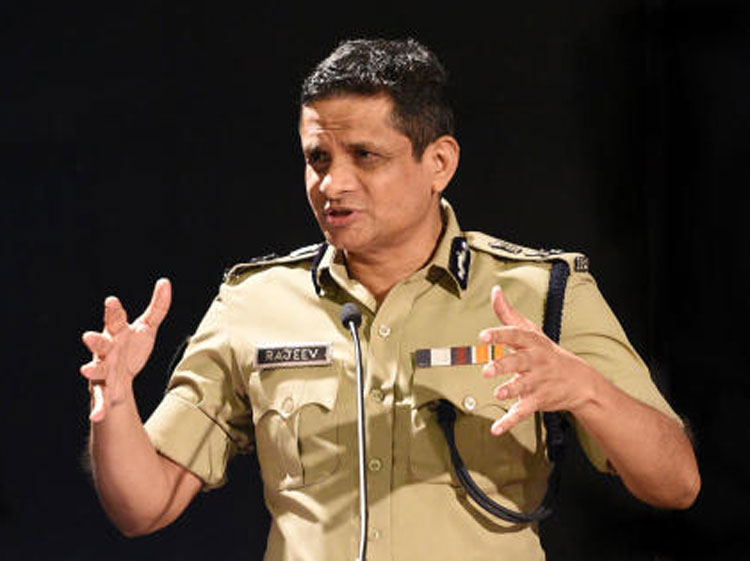Calcutta High Court on Friday gave the CBI liberty to arrest former city police commissioner Rajeev Kumar in the Saradha default probe if the agency concluded after interrogation that such a step was necessary.
Justice Madhumati Mitra rejected Kumar’s contention that he was a victim of “political vendetta”.
He has to cooperate with the CBI and present himself each time the agency asks him to in connection with the case, the judge added. The CBI, the court said, can opt for custodial interrogation.
After the ruling was pronounced, CBI officials went to Kumar’s Park Street residence, where he was not present, and later emailed a notice asking him to appear at the CGO Complex in Salt Lake on Saturday.
The high court ruled that being a citizen of India, Kumar could not receive special treatment.
The CBI contended that Kumar had destroyed a diary containing the names of politicians and MPs who had allegedly received funds from Saradha.
It accused Kumar of failing to hand over key documents in 2014 when the Supreme Court asked the CBI to take over the probe.
Chief minister Mamata Banerjee had sat on a 70-hour protest dharna at Esplanade after a CBI team landed up at Kumar’s then Loudon Street residence on February 3. Mamata had described Kumar as “the best officer in the world”.
The key contentions by Kumar before the court and the judge’s views follow:
- I am merely a witness. Before arresting me, the CBI has to prove before the court that I have committed a cognisable offence.
Court: The law should be equal for all. Investigating agencies have every right to summon a witness for interrogation, and if the investigators feel the need they can arrest him too.
- The state’s special investigation team had other members but the CBI singled me out.
Court: Many important and senior officials were questioned.
- The CBI notice was not in accordance with the law. The agency has no right to summon a person repeatedly for interrogation.
Court: The investigating agency can summon a person for interrogation as many times as it wants.











